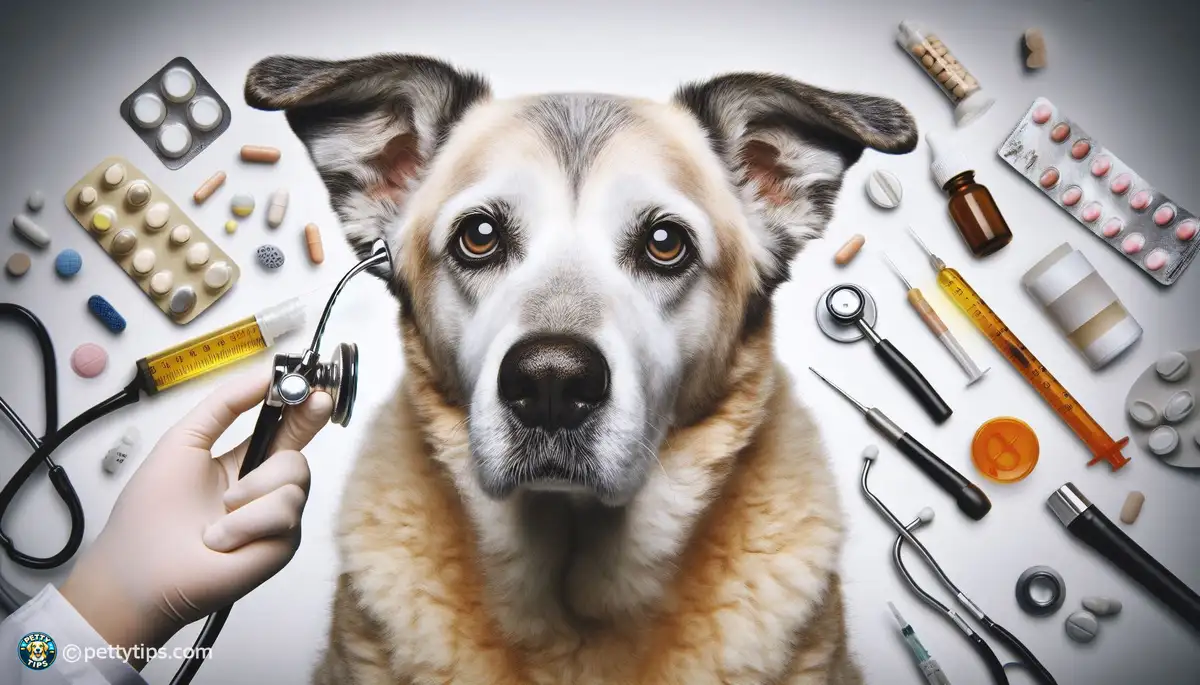
Crafting a Balanced Diet for Your Dog
Lottie Thompson - Sep 12, 2024 - 7 min read


As our furry companions grow older, they often experience a decline in their senses, including hearing. Just like humans, dogs undergo changes in their bodies as they age, and their auditory abilities may be affected. It's essential for pet parents to recognize the signs of hearing loss so they can provide the necessary support and care for their senior pups.
Hearing loss in dogs can stem from various factors, both congenital and acquired. While some pups may be born with hearing impairments due to genetics or developmental issues, others may develop hearing loss later in life. Common causes include untreated ear infections, exposure to loud noises, degenerative conditions, or simply the natural aging process. Understanding these causes can help pet parents take proactive measures to prevent or manage hearing loss in their furry friends.
Detecting hearing loss in dogs can be challenging, especially since they rely on other senses to compensate for any deficits. However, there are several signs that pet parents can watch out for. If your senior dog seems less responsive to verbal cues, fails to react to sounds they once noticed, or exhibits increased startle responses, it may indicate a decline in their hearing ability. Additionally, pay attention to changes in behavior, such as increased barking or confusion, which could be linked to hearing loss.
Regular veterinary check-ups are crucial for monitoring your senior dog's overall health, including their auditory function. During these appointments, veterinarians can assess your pup's hearing and address any concerns or changes you've noticed. Early detection of hearing loss allows for timely intervention and management strategies to improve your dog's quality of life.
If you suspect that your senior dog is experiencing hearing difficulties, your veterinarian may recommend diagnostic tests to evaluate their auditory function. These tests can range from simple behavioral assessments to more advanced techniques like auditory brainstem response (ABR) testing. By pinpointing the extent and nature of your dog's hearing loss, veterinarians can tailor treatment plans to meet their specific needs.
While there is no cure for age-related hearing loss in dogs, there are several ways to manage the condition and enhance your furry companion's quality of life. Depending on the underlying cause and severity of the hearing loss, treatment options may include medication for underlying conditions like ear infections, hearing aids, or assistive devices. Additionally, modifying your communication techniques and incorporating visual cues can help bridge the communication gap with your hearing-impaired pup.
Adapting your home environment to accommodate your senior dog's hearing loss can significantly improve their day-to-day life. Minimize background noise, especially during meal times or when giving commands, to reduce auditory distractions. Consider using visual cues, such as hand signals or flashing lights, to communicate with your pup effectively. By creating a calm and predictable environment, you can help your furry friend navigate their surroundings with confidence.
Training plays a crucial role in helping senior dogs adjust to life with hearing loss. Incorporate positive reinforcement techniques to reinforce desired behaviors and encourage your pup to rely on their remaining senses. Teach them new cues using visual signals and gestures, gradually replacing verbal commands. With patience and consistency, your furry companion can learn to adapt to their changing sensory abilities and continue to thrive.
Coping with hearing loss can be challenging for both dogs and their human companions. It's essential to provide emotional support and reassurance to your senior pup during this adjustment period. Maintain regular bonding activities, such as grooming sessions or gentle massages, to strengthen your bond and boost their confidence. Remember that patience and understanding are key as you navigate this journey together, ensuring that your furry friend feels loved and supported every step of the way.
As our beloved canine companions age, it's natural for them to experience changes in their sensory abilities, including hearing loss. By understanding the signs, seeking veterinary guidance, and providing appropriate support and adaptations, pet parents can help their senior dogs lead fulfilling and comfortable lives. Remember to cherish each moment with your furry friend, celebrating the unique bond that transcends words and sounds. Together, you can navigate the challenges of hearing loss and continue to share a lifetime of love and companionship.